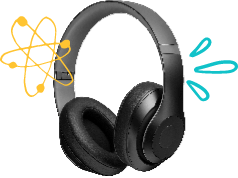La phrase négative
- Fiche de cours
- Quiz
- Profs en ligne
- Videos
- Application mobile
Ex. : He is tired.
He is not tired.
He isn't tired.
Il n'est pas fatigué.
They
are playing tennis.
They
are not playing tennis.
They
aren't playing tennis.
Ils ne vont pas
jouer au tennis.
Jim
is going to take a
photo.
Jim
is not going to take a photo.
Jim
isn't going to take a photo.
Jim ne va pas
prendre de photo.
She
can play the piano.
She
cannot play the piano.
She
can't play the piano.
Elle ne sait
pas jouer du piano.
You
must take
this road.
You
must
not take this road.
You
mustn't take this road.
Vous ne devez
pas prendre cette route.
I
have got a guitar. = I've got a guitar.
I
have not got a guitar. = I haven't
got a guitar.
Je ne
possède pas de guitare.
He
has got a sister. = He's got a sister.
He
has not got a sister. = He hasn't
got a sister.
Il n'a pas de
soeur.
Dans ce cas, le s de la troisième personne est pris par l'auxiliaire do qui devient does ; le verbe reste donc à la base verbale.
Ex. : She knows the
answer.
She
does not know
the answer.
She
doesn't know
the answer.
Elle ne
connaît pas la réponse.
I
want a hamburger.
I
do not want a
hamburger.
I
don't want a
hamburger.
Je ne veux pas
de hamburger.
Ex. : He worked hard last year.
He did not work hard last year.
He didn't work hard last year.
Il n'a pas travaillé dur l'an dernier.
I
saw The Birds by
Hitchcock on TV last week.
I
did not see The Birds by Hitchcock on TV last
week.
I
didn't see The Birds by Hitchcock on TV last
week.
Je n'ai pas vu
Les Oiseaux de Hitchcock à la
télévision la
semaine
dernière.
(Attention aux
verbes irréguliers !)
Ex. : He always listens to the radio in the morning.
Il écoute toujours la radio le matin.
He
never listens to the radio in the morning.
Il
n'écoute jamais la radio le matin.
Vous avez obtenu75%de bonnes réponses !








